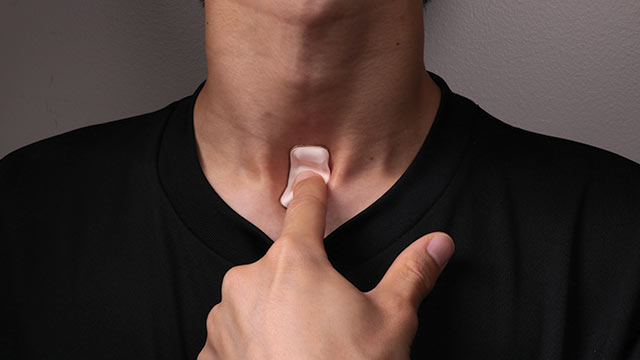Northwestern University’s Querrey Simpson Institute for Bioelectronics (QSIB) has formed a long-term partnership with Maxim Integrated Products, Inc. to help lead the digital revolution in modern healthcare.
A world leader in integrated circuit design and manufacturing, Maxim Integrated has pledged a non-binding gift of $750,000 over 10 years to QSIB’s efforts to develop wireless, bio-integrated medical sensors. The gift counts toward We Will. The Campaign for Northwestern.
The agreement marks Northwestern’s first partnership with Maxim Integrated and, with a duration of 10 years, is the longest corporate gift agreement supporting research at the University.

“Medical innovation doesn’t happen within a year or two,” said Northwestern’s John A. Rogers, executive director of QSIB and bioelectronics pioneer. “Given this, we wanted to set a decade-long timeline focused on improving healthcare and patient outcomes with advanced, next-generation medical sensors. We are ecstatic to partner with Maxim Integrated to help take our technologies out of the laboratory and get them to those who need them most.”
Rogers is the Louis Simpson and Kimberly Querrey Professor of Materials Science and Engineering, Biomedical Engineering and Neurological Surgery at Northwestern. His team has developed an array of clinical-grade, bio-integrated devices that bend, flex and stretch with the human body to track health, healing and disease progression — and then sometimes dissolve harmlessly into biofluids.
To commercialize his team’s devices, Rogers has co-founded multiple startups, including Sibel Health and Rhaeos. Sibel develops and tests wireless, skin-mounted electronic systems for monitoring vital signs with large-scale deployments across five continents worldwide. Recent winner of MedTech Innovator’s 2020 Global Competition, Rhaeos aims to address a critical unmet need in the care of patients with hydrocephalus.
While the pledge is not tied to a specific project, the COVID-19 pandemic has jump-started this partnership. Rogers’ laboratory has already developed a clinical-grade medical device for detecting and monitoring COVID-19, which recently entered clinical trials.

“During this unprecedented health crisis, the work that we do in advanced and ubiquitous medical sensing has never been more important,” said Dr. Shuai “Steve” Xu, medical director of QSIB and lead architect of the partnership. “When we first learned about how Maxim Integrated was directing its resources to rapidly accelerate new integrated circuits to power next-generation sensors specifically for COVID-19, we knew we had to make this partnership happen.”
“When I first spoke to Professor Rogers and Dr. Xu to discuss this partnership, I was impressed to see how they are enabling their vision of remote patient monitoring,” said Shailendra Mahajan, managing director at Maxim Integrated and Maxim Ventures. “The lab has significant grants, strong healthcare ecosystem support and a capable team. This partnership will help Maxim Integrated’s business units look around the corner and help define compelling products. At Maxim Ventures, the corporate arm of Maxim Integrated, we enable innovation by investing in startups that continuously transform technology solutions in healthcare.”
“As a leader in the healthcare space, specifically for wearables, Maxim Integrated is working on a small and power-efficient, single chip solution to measure multiple vital signs for remote patient monitoring applications,” said Tunç Doluca, president and CEO of Maxim Integrated. “We are delighted to have found partners in QSIB, Northwestern University and Sibel Health which plan to take our innovations at the chip level and turn them into breakthrough medical devices. The first goal is to build and deliver a wearable COVID-19 sensor that can do more to monitor health than any other device before it.”
The funds raised through the “We Will” Campaign are helping realize the transformational vision set forth in Northwestern’s strategic plan and solidifying the University’s position among the world’s leading research universities. More information on We Will. The Campaign for Northwestern is available at wewill.northwestern.edu.
Editor’s note: Northwestern, Rogers and Xu have financial interests in Sibel Health and Rhaeos.


